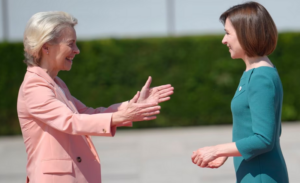 Last week, the European Commission approved EUR 2.7 billion for financing 152 projects in the transportation field, considered to be „key projects that support clean, competitive, connected mobility in Europe.”
Last week, the European Commission approved EUR 2.7 billion for financing 152 projects in the transportation field, considered to be „key projects that support clean, competitive, connected mobility in Europe.”
0,4% of this money (EUR 10,6 million) comes to Romania to finance 6 projects: 2 feasibility studies and 4 multinational projects, the result of some strategic EU policies, not the vision of the governments from Bucharest.
Romanian projects
On the list of the 152 projects funded by the European Commission, 6 concern Romania. They are two feasibility studies that concern the Ministry of Transportation (the same „champion” of the paid and unused studies from the last 5 years, as shown by the Control Body of Prime Minister Ciolos in the winter of 2016) and 4 multinational projects.
Half of the money allocated to Romania goes, therefore, to these two studies:
- Study for upgrading the Predeal-Brasov railway line according to the parameters of the Rin-Danube corridor – financing of EUR 3.73 million
- Study for upgrading the railway infrastructure of Port of Constanta – financing of EUR 2.38 million
The four multinational projects, for which Romania receives money just because the EU is trying to remove the „white spots” across the Union, concern two areas:
- Air traffic management systems – valid throughout the European Union
- Decarbonisation of road transportation – charging stations for electric vehicles along the TEN-T Core networks
Projects of former communist bloc colleagues
The financing that the former communist countries received and for what projects, in the following summary:
Bulgaria – EUR 119 million for 5 projects. 110 million finance national projects including the works of modernization of the Sofia ring road, the development of the Plovdiv railway node and a study for interconnecting the Burgas port with the TEN-T Core network.
Poland – EUR 826 million for 10 projects. 8 of the 10 projects are national, most of them modernization works of the railway transportation network and innovation works (e.g. reduction of truck noise).
The Czech Republic – EUR 275 million for 16 projects. Most projects concern the development of the national component of the main European rail transportation networks.
Hungary seems the closest to Romania’s performance: EUR 11 million for 10 projects. Hungary already has a modern transportation infrastructure network, so most of the money goes to innovation projects.
European philosophy. How Romania approached this opportunity
The main message that Brussels sent when approved the latest list of investments for what is generically called „Europe on the move” is that the EU is making significant progress in implementing the Juncker Plan.
The investments approved are part of a financial mechanism of modernizing the European infrastructure networks having not only the objective of mobility but also the objective of economic activities and job creation.
According to the Commission, the selected projects also include flagship initiatives and the examples in this category come from Poland, Slovenia, Austria, Sweden, Denmark, Germany, France, the United Kingdom and Italy.
The Juncker Plan of investment has been launched in 2014. A report published in April 2016 by the European Commission showed that all 28 member states have proposed over 2,000 projects worth 1,300 EUR billion.
The Ponta government sent a list of 200 projects to Brussels, but because it did not take into account the priorities presented by the initiator of this plan, none of them has been included in the list of funded projects by 2016.









